Vitiligo Notes For Artists
vitiligo notes for artists
I’ve noticed that vitiligo has been becoming more common in art, and I think that’s really cool! But as a person with vitiligo, and an artist, there are few mistakes I’ve noticed in people’s portrayal of the condition that I wanna address.
1. It’s not random. Vitiligo tends to appear more often in specific places, like around the mouth or eyes, the belly button, as well as on the hands and feet. It also tends to be at least a little bit symmetrical.
2. It doesn’t change your eye color. However in some cases it can cause patches of hair to turn white or blonde.
3. It changes over time. As a kid I had tons of vitiligo spots on my feet and legs, but they eventually faded. For a long time I didn’t have any until I developed a spot above my right eye about a year ago. So if you’re portraying a character at different points in their life, their vitiligo should change too.
4. All skin colors can have vitiligo. I’ve noticed on Picrew and other character maker games vitiligo will sometimes only be an option for characters with dark skin. Obviously it won’t be as obvious on light skin, but unless your character is a person with albinism it should still show up.
that’s all I’ve got for now, if I think of more I might make another post :)
More Posts from Lilhaileyfoofoo and Others
the signs as things my dad has said
Aries: i will fight anyone that eats my toast
Taurus: where did i put my glasses, i need them to see
Gemini: i may be asian, but i cant fix your iphone
Cancer: i cried at the end of despicable me two
Leo: it was a very good pun, you should’ve been there
Virgo: whats the English word for “the horses that spin around with music”
Libra: what is “hella”?
Scorpio: i want cheese fries, where the hell are my cheese fries
Sagittarius: dont talk to the dog like that
Capricorn: can you reach that for me, i am very small
Aquarius: “anime”?
Pisces: you have to go to bed early because you smell
Writing Traumatic Injuries References
So, pretty frequently writers screw up when they write about injuries. People are clonked over the head, pass out for hours, and wake up with just a headache… Eragon breaks his wrist and it’s just fine within days… Wounds heal with nary a scar, ever…
I’m aiming to fix that.
Here are over 100 links covering just about every facet of traumatic injuries (physical, psychological, long-term), focusing mainly on burns, concussions, fractures, and lacerations. Now you can beat up your characters properly!
General resources
WebMD
Mayo Clinic first aid
Mayo Clinic diseases
First Aid
PubMed: The source for biomedical literature
Diagrams: Veins (towards heart), arteries (away from heart) bones, nervous system, brain
Burns
General overview: Includes degrees
Burn severity: Including how to estimate body area affected
Burn treatment: 1st, 2nd, and 3rd degrees
Smoke inhalation
Smoke inhalation treatment
Chemical burns
Hot tar burns
Sunburns
Incisions and Lacerations
Essentials of skin laceration repair (including stitching techniques)
When to stitch (Journal article–Doctors apparently usually go by experience on this)
More about when to stitch (Simple guide for moms)
Basic wound treatment
Incision vs. laceration: Most of the time (including in medical literature) they’re used synonymously, but eh.
Types of lacerations: Page has links to some particularly graphic images–beware!
How to stop bleeding: 1, 2, 3
Puncture wounds: Including a bit about what sort of wounds are most likely to become infected
More about puncture wounds
Wound assessment: A huge amount of information, including what the color of the flesh indicates, different kinds of things that ooze from a wound, and so much more.
Home treatment of gunshot wound, also basics More about gunshot wounds, including medical procedures
Tourniquet use: Controversy around it, latest research
Location pain chart: Originally intended for tattoo pain, but pretty accurate for cuts
General note: Deeper=more serious. Elevate wounded limb so that gravity draws blood towards heart. Scalp wounds also bleed a lot but tend to be superficial. If it’s dirty, risk infection. If it hits the digestive system and you don’t die immediately, infection’ll probably kill you. Don’t forget the possibility of tetanus! If a wound is positioned such that movement would cause the wound to gape open (i.e. horizontally across the knee) it’s harder to keep it closed and may take longer for it to heal.
Broken bones
Types of fractures
Setting a broken bone when no doctor is available
Healing time of common fractures
Broken wrists
Broken ankles/feet
Fractured vertebrae: Neck (1, 2), back
Types of casts
Splints
Fracture complications
Broken noses
Broken digits: Fingers and toes
General notes: If it’s a compound fracture (bone poking through) good luck fixing it on your own. If the bone is in multiple pieces, surgery is necessary to fix it–probably can’t reduce (“set”) it from the outside. Older people heal more slowly. It’s possible for bones to “heal” crooked and cause long-term problems and joint pain. Consider damage to nearby nerves, muscle, and blood vessels.
Concussions
General overview
Types of concussions 1, 2
Concussion complications
Mild Brain Injuries: The next step up from most severe type of concussion, Grade 3
Post-concussion syndrome
Second impact syndrome: When a second blow delivered before recovering from the initial concussion has catastrophic effects. Apparently rare.
Recovering from a concussion
Symptoms: Scroll about halfway down the page for the most severe symptoms
Whiplash
General notes: If you pass out, even for a few seconds, it’s serious. If you have multiple concussions over a lifetime, they will be progressively more serious. Symptoms can linger for a long time.
Character reaction:
Shock (general)
Physical shock: 1, 2
Fight-or-flight response: 1, 2
Long-term emotional trauma: 1 (Includes symptoms), 2
First aid for emotional trauma
Treatment (drugs)
WebMD painkiller guide
Treatment (herbs)
1, 2, 3, 4
Miscellany
Snake bites: No, you don’t suck the venom out or apply tourniquettes
Frostbite
Frostbite treatment
Severe frostbite treatment
When frostbite sets in: A handy chart for how long your characters have outside at various temperatures and wind speeds before they get frostbitten
First aid myths: 1, 2, 3, 4, 5 Includes the ones about buttering burns and putting snow on frostbite.
Poisons: Why inducing vomiting is a bad idea
Poisonous plants
Dislocations: Symptoms 1, 2; treatment. General notes: Repeated dislocations of same joint may lead to permanent tissue damage and may cause or be symptomatic of weakened ligaments. Docs recommend against trying to reduce (put back) dislocated joint on your own, though information about how to do it is easily found online.
Muscular strains
Joint sprain
Resuscitation after near-drowning: 1, 2
Current CPR practices: We don’t do mouth-to-mouth anymore.
The DSM IV, for all your mental illness needs.
Electrical shock
Human response to electrical shock: Includes handy-dandy voltage chart
Length of contact needed at different voltages to cause injury
Evaluation protocol for electric shock injury
Neurological complications
Electrical and lightning injury
Cardiac complications
Delayed effects and a good general summary
Acquired savant syndrome: Brain injuries (including a lightning strike) triggering development of amazing artistic and other abilities
Please don’t repost! You can find the original document (also created by me) here.

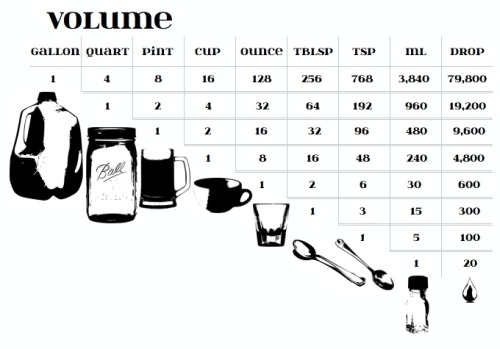



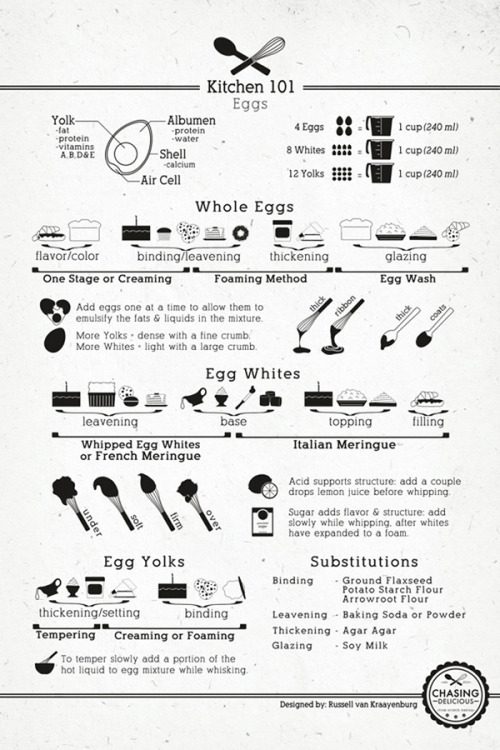


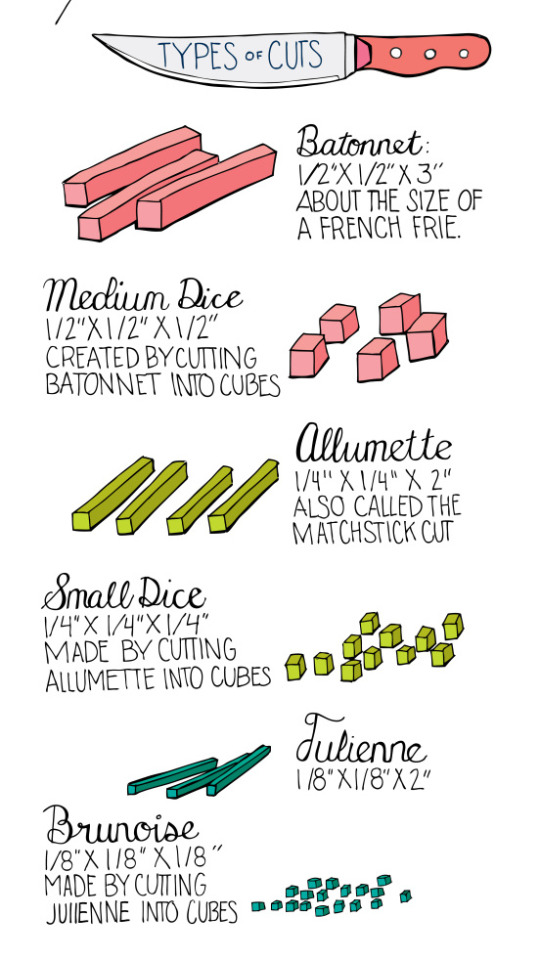

Time for some kitchen charts to help you adult better ;)






My first anatomy tutorial! How I connect arms to the torso. Simplified the muscles for better comprehension
PS. Pectoral is misspelled as “pectorial” in the picture! Don’t make that mistake haha
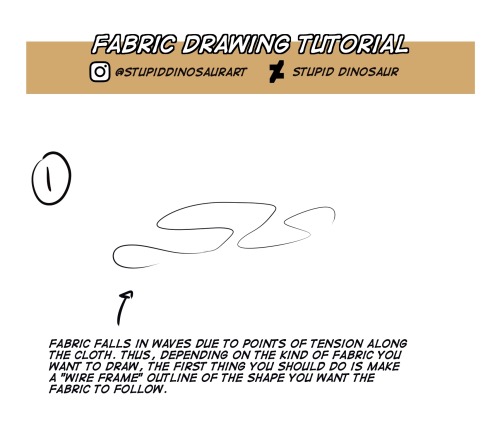
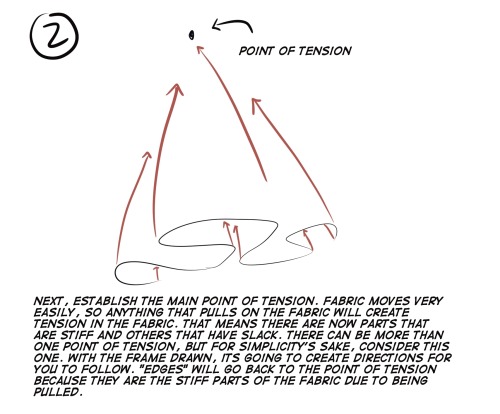
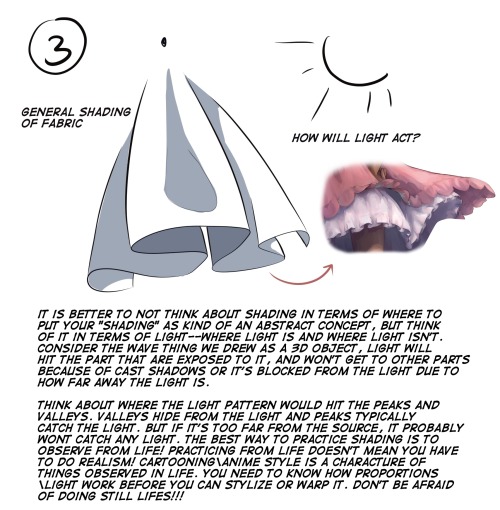
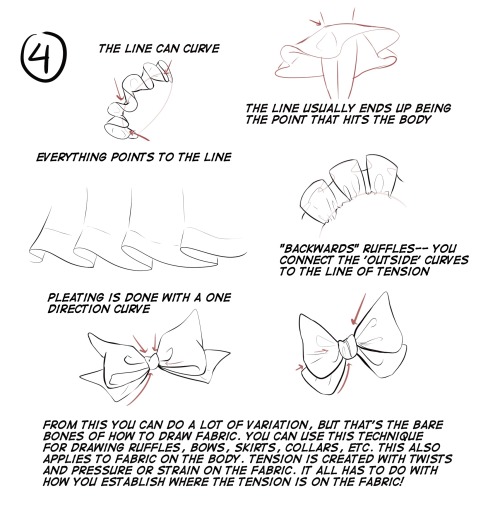
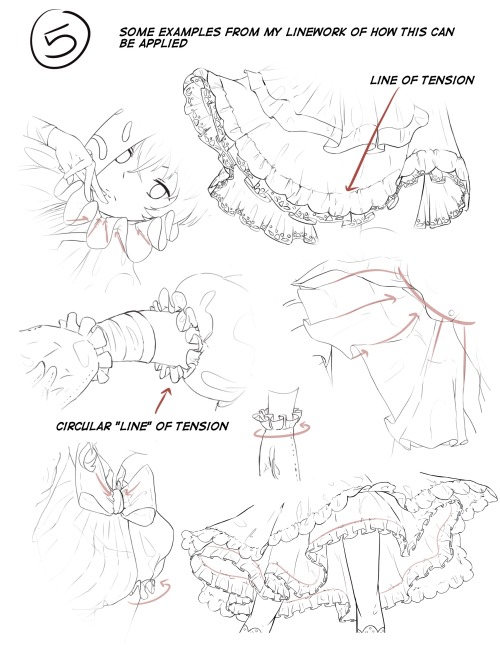
I’ve been getting some requests to make a tutorial on how to draw fabric. It’s really not that complicated when you break it down, but it’s still something people get stuck on and over complicate. Here’s my “bare bones” simple explanation as to how to draw fabric!

Writing advice you're not going to like.
People sometimes send me Asks wanting writing advice. I suck at it. I don’t really know how I do the writing, or how one should do the writing, or what one should do to get better at the writing. All I can ever think to say is “write a lot of stuff and you will get better at the writing.” Which is true, but hardly a bolt from the sky.
Well, as it turns out, I do have one piece of Legit Writing Advice, and I am going to share it with you, right now. If you were in any of my writing workshop groups at a con, you’ve heard this advice already.
Warning: you’re going to fucking hate it. But if you do it, you will thank me.
If you have a piece of fiction you’re serious about, something you might want to actually shop around, or just something you really are into and want to make it as good as you can…do NOT edit it.
Repeat. DO NOT EDIT.
REWRITE.
As in, print out the whole fucking thing and re-enter it, every word (or use two screens). Retype the whole thing. Recreate it from the ground up using your first draft as a template. Start with a blank page and re-enter every. single. word.
I hear you screaming. OH MY GOD THAT’S INSANE.
Yes. Yes, it is.
It is also the most powerful thing you will ever do for a piece of fiction that you are serious about.
Now, let’s get real. I don’t do this for most things. I don’t do it for my fanfiction. But if it’s something original, something I might like to get to a professional level - I do it. You absolutely COULD do it for fanfiction. It’s just up to you and how much time you want to sink into a piece.
You can edit, sure. But you WILL NOT get down to the level of change that needs to happen in a second draft. You will let things slide. Your eyes will miss things. You will say “eh, good enough.”
The first time I did this, on someone else’s advice, I was dubious. Within two pages, I was saying WHY HAVE I NOT BEEN DOING THIS ALL THE TIME. I was amazed at how much change was happening. By the time I got to the end, I had an entirely different novel than the one I’d started with. When you’re already re-entering every single word, it’s easy to make deep changes. You’ll reformat sentences, you’ll switch phrases around, you’ll massage your word choice. You’ll discover whole paragraphs that don’t need to be there at all because they became redundant. You’ll find dialogue exchanges that need reimagining. Whole plot points will suddenly be different, whole story arcs will reveal their flaws and get re-drawn.
You cannot get down to the fundamental level of change that’s required just by editing an existing document. You have to rebuild it if you really want your story to evolve. You will be AMAZED at the difference it will make.
It will take time. It will seem like a huge, Herculean task. I’m not saying it’s easy. It isn’t. But it is absolutely revolutionary.
Try it. I promise, you will see what I mean.
*PSA: Tipsy!Lori wrote this post. In case you couldn’t tell.
-
 espressdoe liked this · 1 week ago
espressdoe liked this · 1 week ago -
 mold-for-breakfast liked this · 2 weeks ago
mold-for-breakfast liked this · 2 weeks ago -
 nyxfaesarthelparchive reblogged this · 2 weeks ago
nyxfaesarthelparchive reblogged this · 2 weeks ago -
 gillipop-refs reblogged this · 3 weeks ago
gillipop-refs reblogged this · 3 weeks ago -
 theres-a-snake-in-my-room liked this · 3 weeks ago
theres-a-snake-in-my-room liked this · 3 weeks ago -
 lonely-space-egg liked this · 3 weeks ago
lonely-space-egg liked this · 3 weeks ago -
 threeaxolotlsinatrenchcoat liked this · 1 month ago
threeaxolotlsinatrenchcoat liked this · 1 month ago -
 shrimplets liked this · 1 month ago
shrimplets liked this · 1 month ago -
 kayayayayayayay liked this · 1 month ago
kayayayayayayay liked this · 1 month ago -
 ikeepgettingsh0t reblogged this · 1 month ago
ikeepgettingsh0t reblogged this · 1 month ago -
 biblefudanshi reblogged this · 1 month ago
biblefudanshi reblogged this · 1 month ago -
 escapethemojave reblogged this · 1 month ago
escapethemojave reblogged this · 1 month ago -
 rat-in-clown-shoes liked this · 2 months ago
rat-in-clown-shoes liked this · 2 months ago -
 authorgirl0131 liked this · 2 months ago
authorgirl0131 liked this · 2 months ago -
 feydeer liked this · 2 months ago
feydeer liked this · 2 months ago -
 avgforaverage liked this · 2 months ago
avgforaverage liked this · 2 months ago -
 goldendragonleaf reblogged this · 3 months ago
goldendragonleaf reblogged this · 3 months ago -
 goldendragonleaf liked this · 3 months ago
goldendragonleaf liked this · 3 months ago -
 eclectickefi-ao3 reblogged this · 3 months ago
eclectickefi-ao3 reblogged this · 3 months ago -
 chjrpy liked this · 3 months ago
chjrpy liked this · 3 months ago -
 artblock-addict liked this · 3 months ago
artblock-addict liked this · 3 months ago -
 mxchief-kitty liked this · 3 months ago
mxchief-kitty liked this · 3 months ago -
 raphaelawheeler liked this · 3 months ago
raphaelawheeler liked this · 3 months ago -
 angelonasher liked this · 3 months ago
angelonasher liked this · 3 months ago -
 velvet-sword liked this · 3 months ago
velvet-sword liked this · 3 months ago -
 nateneedssleep liked this · 3 months ago
nateneedssleep liked this · 3 months ago -
 itsazurediamond reblogged this · 3 months ago
itsazurediamond reblogged this · 3 months ago -
 itsazurediamond liked this · 3 months ago
itsazurediamond liked this · 3 months ago -
 goblinbugthing reblogged this · 4 months ago
goblinbugthing reblogged this · 4 months ago -
 goblinbugthing liked this · 4 months ago
goblinbugthing liked this · 4 months ago -
 cauli-flawa liked this · 4 months ago
cauli-flawa liked this · 4 months ago -
 cauli-flawa reblogged this · 4 months ago
cauli-flawa reblogged this · 4 months ago -
 oddballsoddities liked this · 5 months ago
oddballsoddities liked this · 5 months ago -
 colorfulpuppychaos liked this · 5 months ago
colorfulpuppychaos liked this · 5 months ago -
 clevernamepending reblogged this · 6 months ago
clevernamepending reblogged this · 6 months ago -
 wowdragonhead liked this · 6 months ago
wowdragonhead liked this · 6 months ago -
 acidicleafbat liked this · 6 months ago
acidicleafbat liked this · 6 months ago -
 snarkissist liked this · 6 months ago
snarkissist liked this · 6 months ago -
 koibeeissilly liked this · 6 months ago
koibeeissilly liked this · 6 months ago -
 queerb0bpridepants liked this · 6 months ago
queerb0bpridepants liked this · 6 months ago -
 jjdogasaur liked this · 6 months ago
jjdogasaur liked this · 6 months ago -
 mimocrocodilelol liked this · 6 months ago
mimocrocodilelol liked this · 6 months ago -
 curi0uscreature reblogged this · 6 months ago
curi0uscreature reblogged this · 6 months ago -
 toothpudding liked this · 6 months ago
toothpudding liked this · 6 months ago -
 ducksgetbitchss liked this · 6 months ago
ducksgetbitchss liked this · 6 months ago -
 enchanted-lightning-aes reblogged this · 7 months ago
enchanted-lightning-aes reblogged this · 7 months ago -
 barelytoxic liked this · 7 months ago
barelytoxic liked this · 7 months ago -
 28turnips-in-a-trenchcoat liked this · 7 months ago
28turnips-in-a-trenchcoat liked this · 7 months ago -
 homukyo liked this · 7 months ago
homukyo liked this · 7 months ago -
 chouchinobake liked this · 7 months ago
chouchinobake liked this · 7 months ago

I mostly reblog writing and art related resources here. BLMMy main account is FoofsterRoonie. My art blog is FoofsterArtAnd my writing blog is Foofsterwriting:)
197 posts
